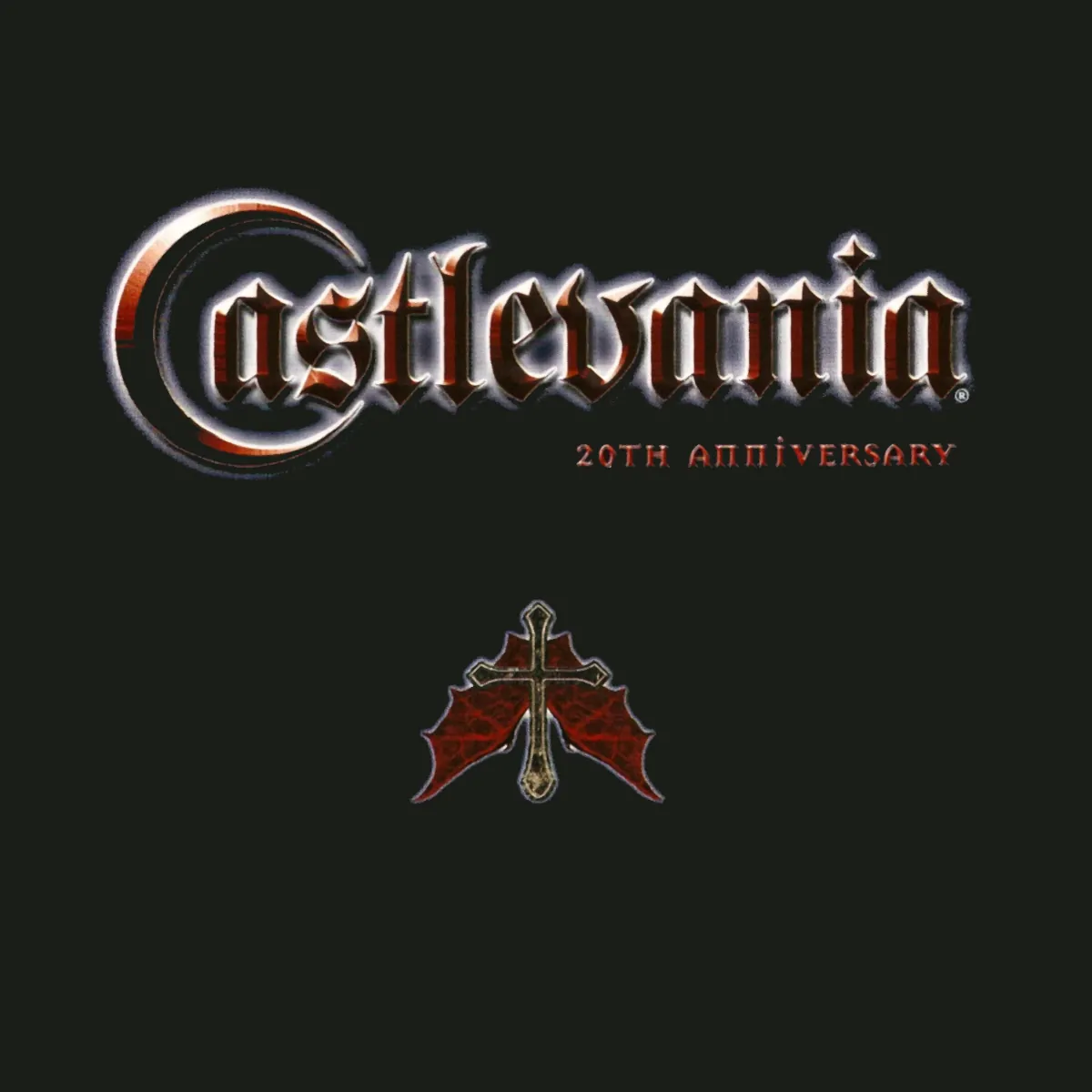Nostalgia makes us evil men. It can corrupt our minds and romanticize our childhoods as better than they were. It can twist the cartoons of our youth into shining grails that haunt our merchandisable impulses to this day. It can make us believe that Final Fantasy Mystic Quest wasn’t as awful as they say. Oh wait, no it can’t.
For all nostalgia’s evils, however, it’s a deliciously romantic thing, and that’s precisely what Castlevania 20th Anniversary Deluxe Music Collection presents. It’s a collection of some of the finest tracks from Castlevanian antiquity, including “Iron-Blue Intention,” “Vampire Killer,” and the stirring “Bloody Tears.”
The first twenty tracks are the work of the Konami Kukeiha Club, Konami’s venerable and august sound team. Led by Motoaki Furukawa, their work has permeated Konami games since its humble beginnings, ranging from Gradius to Castlevania, to the cyberpunk classic Snatcher. The best known member however, is a woman who has lent her talents tirelessly to Castlevania: Michiru Yamane, immortalized for her work on Symphony of the Night. As no Castlevania collection could be complete without her, she is responsible for tracks 23 through 36.
Masahiko Kimura, who RPG fans may remember from Suikoden III‘s soundtrack, gives us tracks 21 and 22, “Pitch Black Intrusion” and “Dracula’s Tears” from Dawn of Sorrow. Then to finish things off, Shoshiro Hokkai, one of the little-known composers in the Castlevania world, gives us the conclusive track 37, “Successor of Fate” from Aria of Sorrow.
But how do they sound?
Most of the work from Kukeiha Club is as you’d expect it: MIDI perfect. Every last tinny, synthesized note is there, ready to please anyone hungering for an old-school delight. I should note, I ordinarily revile MIDI music for its lack of instrumentation, and have only minor reservations about lambasting it outright. Here, however, I find myself strangely attracted to the music. Some tracks like “Battle of the Holy” invoke fond memories of playing Castlevania as a child, and somehow it doesn’t matter how tinny or synthesized the notes are. They work.
Even removing my nostalgic happiness, I have to say that Kukeiha Club really knew its stuff. Not a lot of MIDI music holds up over the years, what with Redbook audio and such being the standard of the modern day. But here, the MIDI instrumentation is just that memorable, that well done, that it remains enjoyable.
Kimura’s contributions are much more up-tempo than its older relatives, and yet the feeling doesn’t change. There’s a faster pace, a less gloomy atmosphere, but the organ and running beat remain, keeping it strictly Castlevania. Definitely a fine continuation in the tradition of Castlevania themes.
Michiru Yamane? What can I say that hasn’t already been covered by a hundred thousand other fans of her work? She made a solid name for herself with Symphony of the Night, and it’s not hard to see why. There’s a higher degree of splendor in her works, bringing Castlevania up from its gloomy, gothic roots, into something more elegant and epic. Themes such as “Dracula’s Castle” are simply stunning in how much they explore. A ghostly introduction leads to the bold, driving pace SotN players should be well familiar with, interspersed with a romantic, hopeful flush of strings that bring it to its climax. Then a moment of impending doom mounts, only to bring us full circle to the roaming beat. It’s this sort of musical mastery that makes Michiru Yamane the undoubted mistress of Castlevania‘s aural veneration.
Ah, but there’s someone else with her. I didn’t mention him before as he’s a bit of a treat: Yuzo Koshiro. The master of ActRaiser is indeed included on this album, and rightfully so. Where Yamane by herself gives us the epic and the romantic, Koshiro injects themes with an utter urgency. “Hail from the Past” is an excellent example of this. With a dash of middle-Eastern flavor for good measure, the driving rhythm is an aural delight. Strangely, despite not having the actual organ present that would link this more heavily to traditional Castlevania work, the higher pitch of the strings still invokes the organ’s whine, creating a subtle, yet exquisite bridge. It’s all that’s necessary to make it sound expressly “Castlevanian.”
Now, I hate to bring it to a downer, but the least “necessary” theme on this soundtrack is Hokkai’s. Not being a fan of the more recent Castlevania titles (though not because of their good or bad points, mostly because I’m burned out), I may not realize the importance of this theme. Nonetheless, “Successor of Fate” seems like an utterly weak point to end on as it has nothing compelling, and nothing unique to say. It’s a shame too, because the rest of the tracks are wonderfully indulgent of fan affection.
All in all however, Hokkai’s single disappointment is not worth fussing over. With a staggering history of twenty-three games from which to choose their music, it’s a bit of a wonder that Konami didn’t create a larger soundtrack. Yet despite that, it is a “best of” soundtrack in spirit, and reflects that quite potently in its selection.
The entire soundtrack warrants a swift acquisition. As a classic Castlevania fan, I’m very much an enthralled listener, and heartily recommend it to anyone who’s a Castlevania enthusiast.




